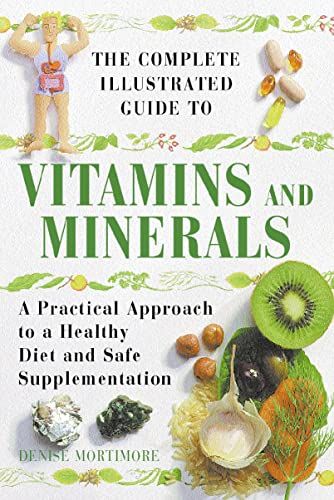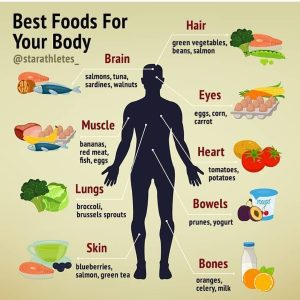
Vitamins and minerals are essential nutrients that our bodies need to function properly. They play a crucial role in maintaining overall health and preventing various diseases and conditions. This comprehensive guide aims to provide an in-depth understanding of vitamins and minerals, including their sources, functions, recommended daily intake, and potential health benefits. Let’s delve into the world of vitamins and minerals and uncover their significance in maintaining a healthy lifestyle.
What are Vitamins?
Vitamins are organic compounds that our bodies require in small amounts to perform various functions, such as promoting growth, maintaining a healthy immune system, and aiding in the metabolism of carbohydrates, fats, and proteins. There are 13 essential vitamins, classified into two main categories:
Water-Soluble Vitamins: These include vitamin C and all eight B vitamins. As they dissolve in water, they are not stored in the body and need to be replenished regularly.
Fat-Soluble Vitamins: These include vitamins A, D, E, and K. They are stored in the body’s fat tissues and liver, and an excess intake can lead to toxicity.
Types of Minerals
Minerals are inorganic substances that are essential for various bodily functions, including bone formation, nerve function, and energy production. There are two main types of minerals:
Macro Minerals: These minerals are required in larger quantities by our bodies and include calcium, phosphorus, magnesium, sodium, potassium, and chloride.
Trace Minerals: These minerals are needed in smaller amounts but are equally important. Examples include iron, zinc, copper, iodine, selenium, and fluoride.
Functions and Benefits
The main functions of vitamins and minerals are incredibly diverse and vital. Here are some key roles they play in maintaining optimal health:
1. Support Immune Function
Vitamins A, C, D, and E, along with minerals like zinc and selenium, play crucial roles in supporting the immune system. They help in the production of immune cells, protect against harmful pathogens, and promote optimal immune response.
2. Ensure Healthy Bone Development
Calcium, phosphorus, magnesium, vitamin D, and vitamin K are essential for building strong bones and preventing conditions like osteoporosis. They aid in bone formation, repair, and maintenance, ensuring overall skeletal health.
3. Promote Energy Production
Vitamins B1, B2, B3, B5, B6, B7, B9, and B12, collectively known as B-complex vitamins, are involved in converting food into energy. They play a crucial role in the metabolism of carbohydrates, proteins, and fats, providing the necessary fuel for the body.
4. Support Cognitive Function
Several vitamins and minerals, including vitamin E, vitamin B12, iron, zinc, and magnesium, play a vital role in maintaining healthy brain function, boosting memory, and preventing cognitive decline.
Sources of Vitamins and Minerals
Vitamins and minerals can be obtained through a balanced diet. Here are some common sources:
1. Fruits and Vegetables
Fruits and vegetables are excellent sources of various vitamins and minerals. Citrus fruits provide vitamin C, while leafy greens offer essential minerals like magnesium and calcium.
2. Whole Grains
Whole grains such as brown rice and oats are rich in B-vitamins and minerals like iron and magnesium, providing sustained energy and supporting overall health.
3. Dairy Products
Milk, cheese, and yogurt are rich in calcium, phosphorus, and vitamin D, essential for healthy bones and teeth.
Recommended Daily Intake
The recommended daily intake of vitamins and minerals varies depending on factors such as age, gender, and overall health. It is important to consult a healthcare professional or refer to dietary guidelines for specific recommendations.
Potential Health Risks
While vitamins and minerals are crucial for maintaining good health, excessive intake or deficiencies can lead to adverse effects. It is important to strike a balance and avoid self-supplementation without professional guidance.
Conclusion
Vitamins and minerals are essential nutrients that play a vital role in maintaining overall health and well-being. A balanced diet, rich in various fruits, vegetables, whole grains, and dairy products, can provide the necessary vitamins and minerals for optimal functioning of our bodies. Remember to consult healthcare professionals for specific dietary requirements and recommendations for a healthy lifestyle.

